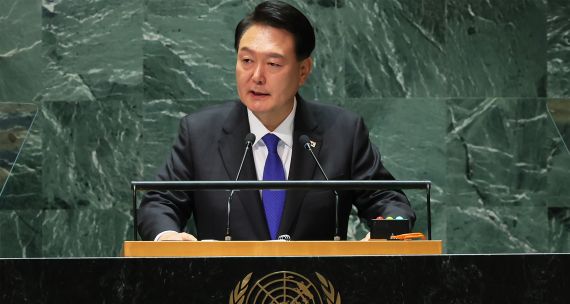The Takeaway
Concerns surrounding school violence and bullying in South Korea have attracted widespread public interest and compelled President Yoon Suk Yeol to commit to addressing these issues. The government recently proposed creating a state agency dedicated to supporting victims of school violence. As the impact of this issue extends beyond educational institutions, tackling these challenges may have far-reaching implications for workplaces and other social settings.
In Brief
Prompted by a high-profile bullying controversy involving the son of a government appointee — whose appointment was eventually cancelled in February — Yoon urged the Ministry of Education to devise measures to eradicate school violence. On June 1, the South Korean government, in collaboration with the ruling People Power Party (PPP), announced plans to establish a state agency to provide support and assistance to victims of school violence. The Ministry of Education plans to research the healing and recovery of victimized students, dissemination of programs, education and training, and support to create a national institution that focuses on facilitating the recovery of student victims.
According to the Committee for Countermeasures Against School Violence, there were about 30,000 bullying cases annually in South Korea before COVID-19. That number decreased to 8,357 in 2020 when the pandemic brought strict social distancing protocols, including virtual classes. With the resumption of in-person classes in 2021, cases of school violence surged to 15,652, double the 2020 number.
The popular Netflix series The Glory, which depicts brutal school violence, also heightened public concern and awareness about this issue. Reports from the Ministry of Education show that verbal violence accounted for 42 per cent of all school violence after in-school classes resumed. Physical bullying increased from 10.7 per cent between 2013 and 2020 to 13.3 per cent in 2022. Cyberbullying was also recognized to be on the rise. An association of families of students who were victims of cyberbullying developed a mobile app in March to simulate the phone of a female student being bullied both physically and verbally by her classmates, underscoring the need for more awareness and comprehensive measures to address this issue.
Implications
Unabated bullying has ripple effects throughout society, with the victims of bullying in childhood often suffering severe depression, social reclusion, or thoughts of suicide in early adulthood and beyond. Addressing violence and bullying can pose challenges and the journey can be arduous for those who take action, as one of every three victims in South Korea cannot access any assistance from schools and the government. Studies show that peer-on-peer abuse in South Korea is increasing and research suggests that universities should also check in with their students to establish if they have experienced school violence that may have lasting impacts.
The Ministry of Gender Equality and Family has acknowledged the country’s struggling youth and approved a partial amendment to the Youth Welfare Support Act to include socially withdrawn youth as a special support target in April. The Ministry of Education also announced in April that college applications, starting in 2024, will automatically include a student’s history of bullying or school violence for perpetrators to take responsibility for their actions and to discourage future applicants from bullying. This is a significant move because college applications and admissions in South Korea are highly competitive, and acceptance to a reputable university is associated with better career prospects, social status, and overall success in life.
The Ministry of Education has also emphasized the importance of strengthening punishment for perpetrators of bullying, prioritizing and ensuring victims’ safety, focusing on the role of teachers in preventing school bullying, and improving bullying guidelines in schools. However, critics, including legal professionals, have cautioned that these measures may inadvertently increase litigation between victims and perpetrators, potentially disadvantaging economically vulnerable students who cannot afford the associated legal costs. In this context, calls may increase for more practical measures to educate students and repair their relationships with peers.
What's Next
- Calls for amendments to laws: Lawmakers are requesting amendments to the 2011 School Violence Prevention Act. The amendments would expand the current application of the Act to mandate educating students in the second grade or younger on resolving daily conflicts.
- Bill to assist school violence victims: On June 12, the education committee of the National Assembly passed a revision bill to provide support to victims of school violence during their recovery and treatment. Known as the “Chung Sun-sin Prevention Bill” after the national investigation chief whose appointment was cancelled due to revelations of his son’s involvement in school bullying, the Bill consists of legislative support measures to increase specialized support services. It also recognizes cyberbullying as a form of school violence and provides support mechanisms for victims of online bullying.
- Challenges remain in the workplace: Workplace harassment is also an issue in South Korea. Gapjil, a Korean term for “abusive attitude and behaviour by those in positions of power,” is something many workers relate to. Despite implementing a workplace anti-bullying law in 2019, polls show that workplace harassment returned to pre-pandemic levels after a few years of social distancing. As polls and activists call for solutions to gapjil, it seems imperative to also prioritize efforts to address workplace harassment.
• Produced by CAST's Northeast Asia team: Dr. Scott Harrison (Senior Program Manager); Momo Sakudo (Analyst); Tae Yeon Eom (Analyst); and Sue Jeong (Analyst).





